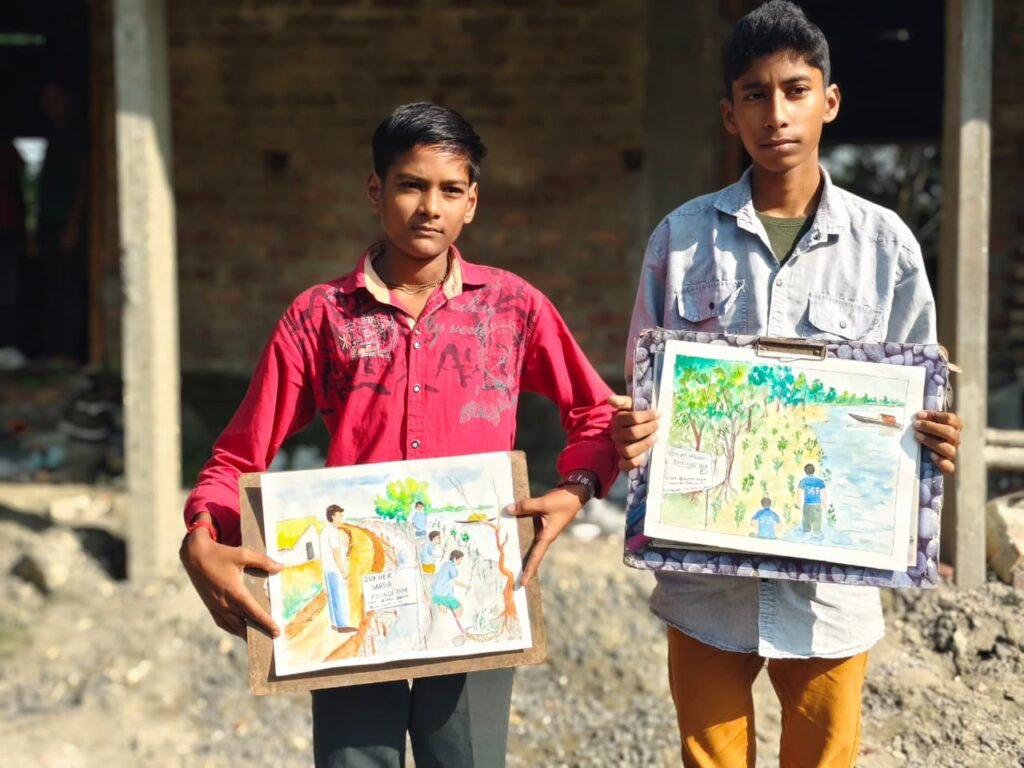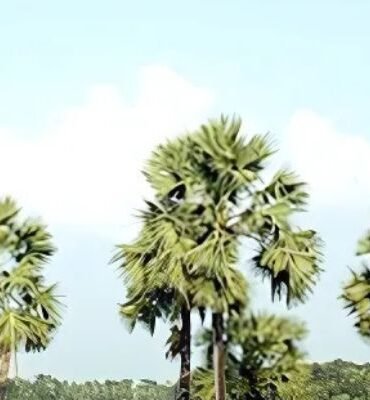
Sustainable Banana Plantation
Major Accomplishments
The organization has already planted 420,000 mangrove saplings along the river coastal areas of the Sundarbans.
Beyond Mangrove Plantation, the organization plays a crucial role in educating the people of the Sundarbans about the importance of mangrove forests and organizes awareness programs to encourage participation in the survival initiatives of mangroves and the Sundarban islands.
Empowering women is a key practice, and the organization engages them in the mangrove plantation program. They contribute significantly, from seed collection to planting saplings, and many women’s groups are actively involved, earning wages for their livelihoods.
In addition to Mangrove Plantation, the organization supports farmer plantation by providing cash plants free of cost, helping farmers earn a living for their families.
Access to quality education is a challenge for students in the Sundarbans. The organization runs free coaching centers to assist them in obtaining quality education and provides various reference books to enhance their knowledge in different subjects.
Educated but unemployed youth in this delta often lack computer knowledge and English communication skills. The organization offers training institutes to enhance their skills, improving their job prospects.
The organization took a humanitarian role during the COVID-19 lockdown and the devastating cyclones of Amphan and Yash. During the COVID period, members risked their safety to deliver medicine, food, water, and essential commodities to those confined due to lack of communication. During cyclones, they ran community kitchens for the homeless and flood-affected individuals.
Education fosters intellectual development, but physical development is equally important. The organization regularly arranges sports programs, promoting mental and physical well-being while encouraging student participation in cultural programs, enhancing their awareness of societal duties.
To instill environmental consciousness from a young age, we organize plantation events in school grounds, allowing students to learn about the importance of greenery. So far, we have successfully arranged such programs at 12 schools, receiving remarkable responses from students.
Following the Amphan cyclone, vast areas of Manipur and Atapur villages were flooded with saline water. To address the resulting health crisis, the organization played a vital role in draining polluted water and sanitizing the area, helping restore the habitat.
Project Objective
- Improve the livelihoods of 10 poor farmers in the Sundarbans through sustainable banana plantation.
- Increase income and food security for marginalized communities.
- Promote eco-friendly farming practices and conserve natural resources.
Environmental Benefits
- Carbon Sequestration: Banana plants absorb approximately 20 kg of CO2 per year, totaling 20,000 kg CO2 per year for 1,000 plants.
- Soil Conservation: Helps maintain soil health, reduce erosion, and increase fertility.
- Biodiversity Conservation: Provides habitat for various beneficial insects, birds, and microorganisms.
- Water Cycle Regulation: Regulates water cycles, reduces runoff, and increases groundwater recharge.
Project Components
Training and Capacity Building
- Number of farmers to be trained: 10
- Training topics: Modern banana cultivation techniques, soil management, pest control.
Land Preparation and Plantation
- Number of farmers to be supported: 10
- Area of land to be covered: 1 acre (approx.)
- Banana variety to be planted: High-yielding variety (e.g., Cavendish)
- Number of banana saplings: 1,000
Input Support
- Type of inputs to be provided: Seeds, fertilizers, irrigation equipment.
- Number of farmers to receive inputs: 10
Monitoring and Evaluation
- Frequency of monitoring: Quarterly
- Evaluation criteria: Income increase, food security, environmental impact.
Marketing Support
- Market linkages to be established: Local markets, wholesalers.
- Number of farmers to benefit from marketing support:
- TOP 10 NGOs in kolkata, West Bengal. Top 10 NGOs in environment in kolkata, West Bengal. Top 10 NGOs in education in kolkata, West Bengal. Top 10 NGOs in health in kolkata , Sundarbans , West Bengal, Top 10 NGOs in skill development in kolkata. Top 10 NGOs in Rural Livelihood, Gift A Tree , Plant a tree, Tree plantation for CSR, tree plantation for SDG. Tree plantation for ESG. Mangrove carbon credit, mangrove footprint. Mangrove in India
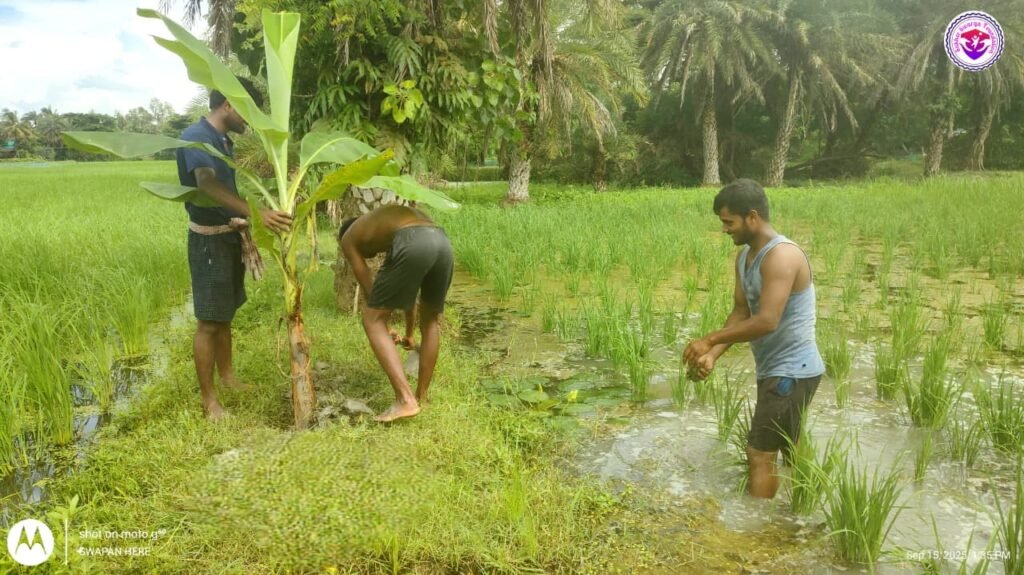
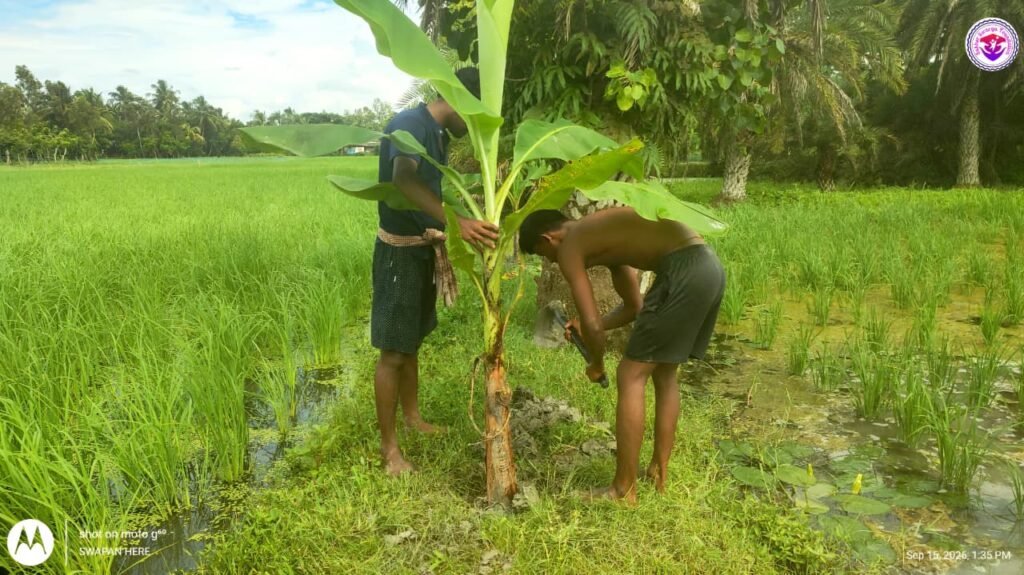
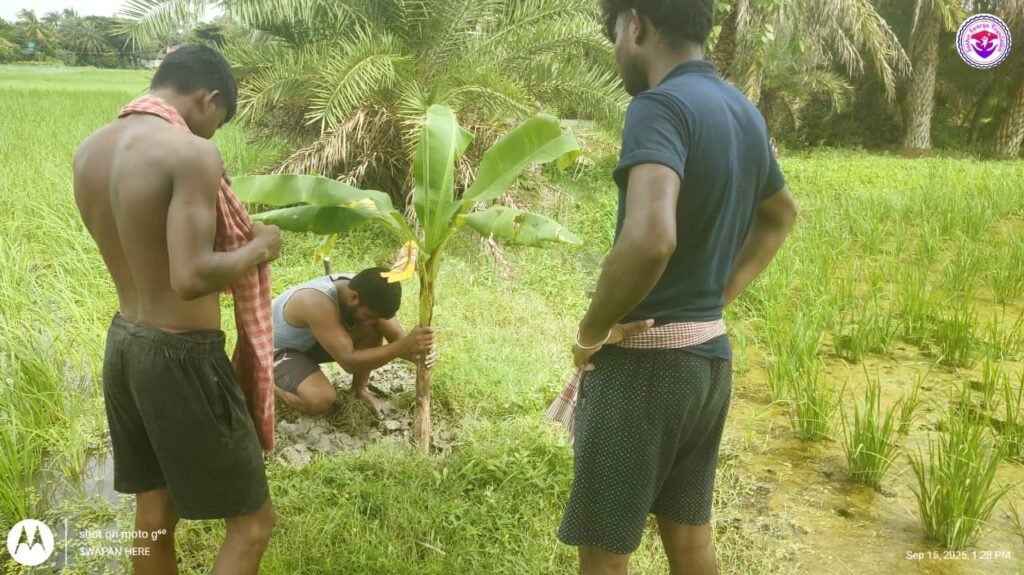
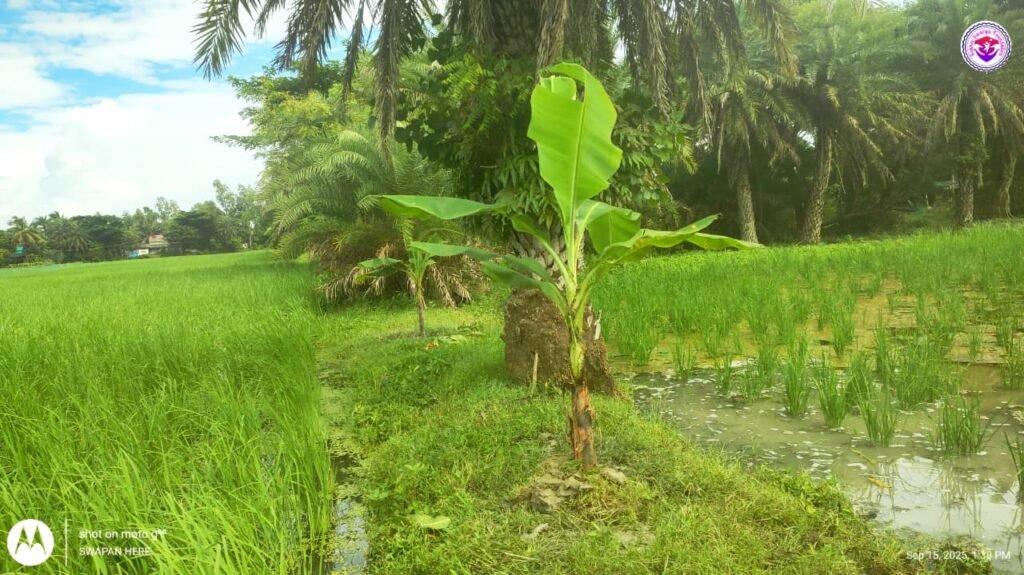
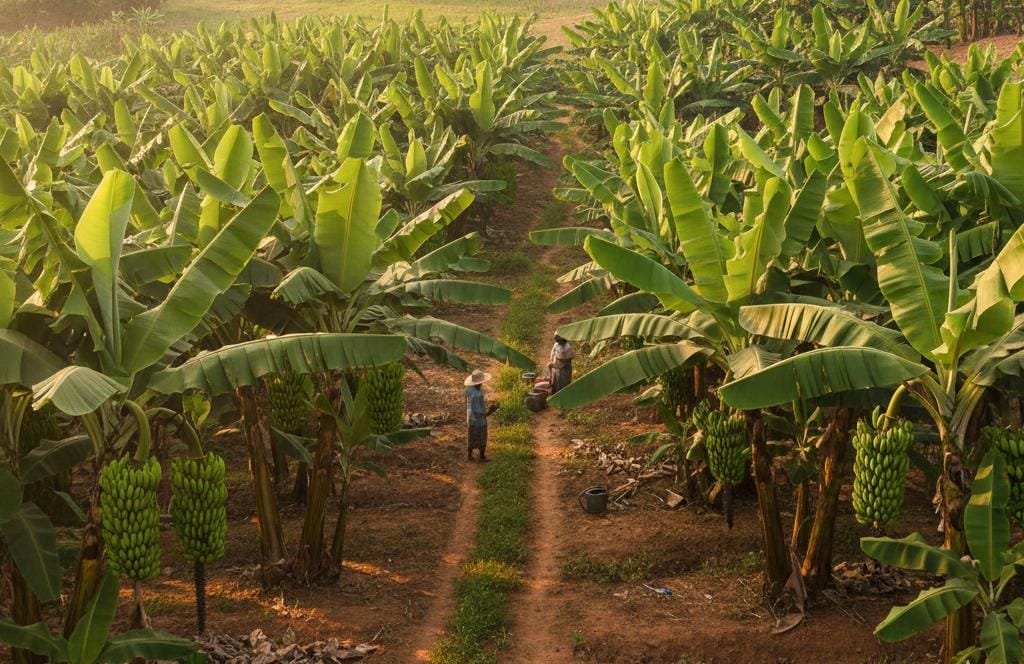
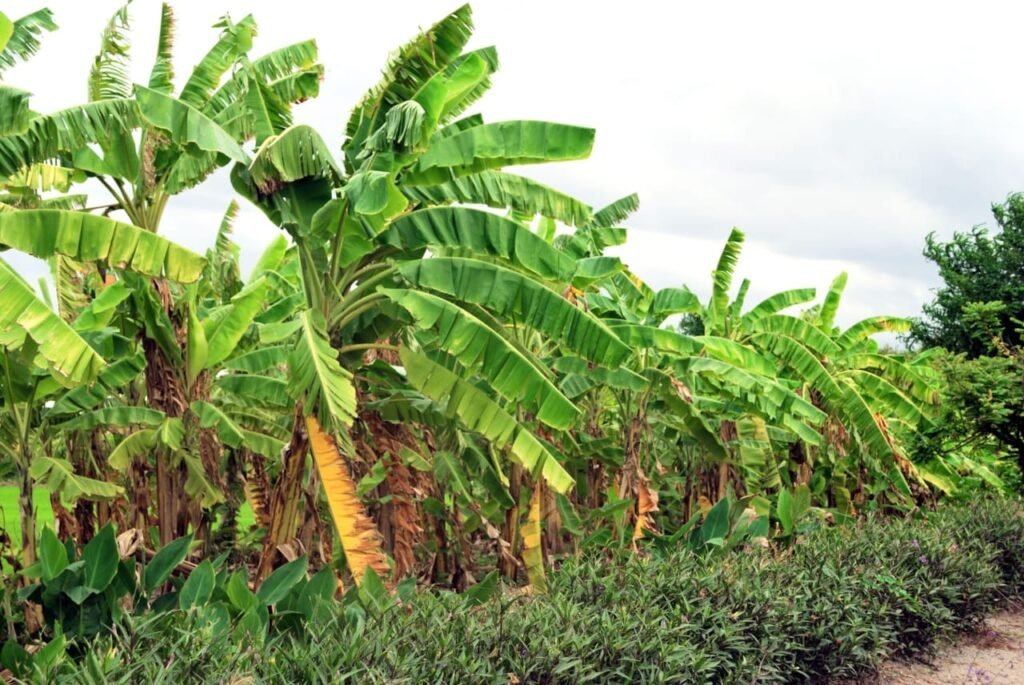
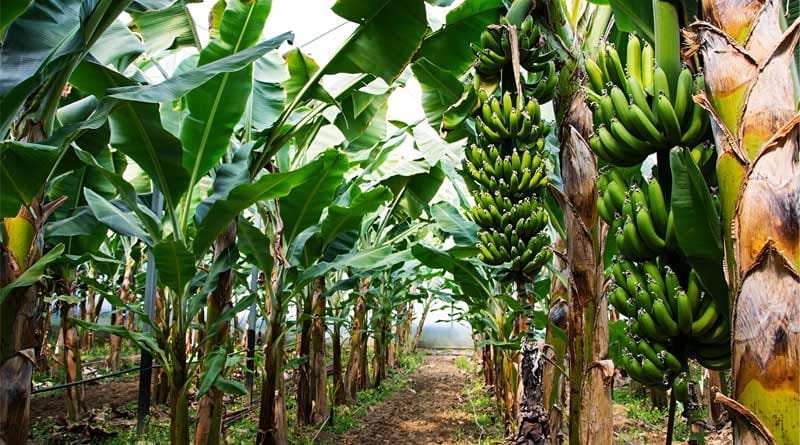
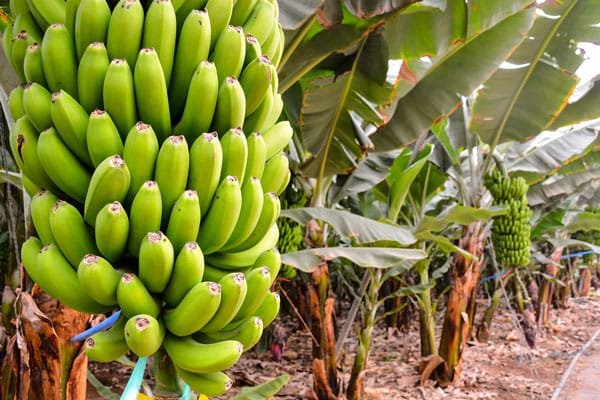
SUKHER SWARGA FOUNDATION
TOP 10 NGOs in kolkata, West Bengal.
Top 10 NGOs in environment
in kolkata, West Bengal.
